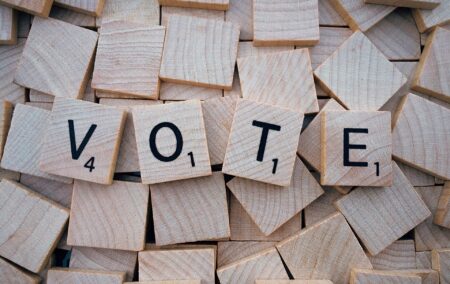I was recently doing some reading and came across a lady called Marine le Pen.
She is a prominent politician in France who ran against current French President, Emmanuel Macron, in the last election there – and some think she has a good chance of beating him when France votes again next year.
While at first I was quite intrigued by Ms Le Pen, I became increasingly aghast as I did some more reading about her.
Not so progressive
Shockingly, Macron (a white cishetero man) is more progressive than Ms Le Pen. She is opposed to immigration (even legal immigration) and is, at best, sceptical, of the European Union. Even worse, the party she is a member of, the Front National, was basically a neo-Nazi party for some time. And her father would not have felt out of place at a Democratic Alliance caucus meeting, going by the things he used to believe.
What shocked me most of all is that Ms Le Pen is a woman (I assume she identifies as such; I have not been able to find confirmation of her pronouns, but she seems to present as what society would consider a woman and she is generally referred to as her and she).
Now, it is well accepted that women are progressive and do not hold positions contrary to progressivism. That is why one should always #voteforwomen. If you do so, you know you will always be supporting people with the correct opinions.
I found a similar perplexing example right here in this country when I was thinking about who to vote for in the upcoming municipal election. The DA’s candidate for Johannesburg, the city where I live, is a woman called Mpho Phalatse. Normally I would vote for her, no question, as she is a woman of colour, but she is the candidate of the DA. Does this mean she is still a black woman or, in political terms, actually a white man?
Now of course, some reactionaries will also point to other ‘women’ like Margaret Thatcher, the former Prime Minister of England and leader of the fascist Tories, as an example of a woman who was not progressive. Others in this country will argue that Helen Zille, the effective leader of the fascist DA, is another example of a non-progressive woman.
So, where does this leave someone in my position, who makes their decisions on who to vote for primarily by identity markers rather than policy?
Politically female
I think we need to start determining who is ‘politically female,’ in the same as some people can be identified as ‘politically black’. Someone like Sihle Ngobese, aka Big Daddy Liberty, is a good example of someone our society would consider black from his outward appearance but would certainly not be politically black.
Ngobese’s anti-black positions, such as defending property rights, the right of people to be treated as individuals rather than avatars for their group, the right of law-abiding citizens to protect themselves, and his message of personal responsibility, firmly put him in the camp of anti-black forces.
There are others that could be named, such as Phumlani Majozi, and black people who are members of neo-Nazi organisations, such as the DA. It is truly a travesty that there are black people who disagree with progressive positions that I and others hold, and this is likely because of brainwashing or long-term alcohol or drug abuse.
While it is true that white people can hold positions from across the political spectrum – from being communists to being libertarians – and they are not accused of being sell-outs or race traitors, all right-thinking people know that black people can only legitimately hold certain political positions, if they do intend to be authentically black.
With regard to people like Thatcher and Zille (as well as people like Zille’s colleague, Natasha Mazzone) I think a case could be made that because they disagree with positions which I – a progressive anti-racist woman – hold, these women are not truly women. Similarly, a case can be made that Ngobese and others of his ilk are not truly black.
#voteforwomen
So, should we still push campaigns such as #voteforwomen or insist that the voices of black, indigenous, and people of colour be centred?
I think the answer is an unequivocal YES – as long as you realise that if a person is not a woman politically they are not a woman in the true sense of the word. Ditto black people who disagree with me; they are not black in the true sense of the word.
So #voteforwomen, and please centre black voices, but ensure they are the right kind of woman or the right kind of black person.
We will have betrayed people like Tata Madiba if we started accepting that identity markers are actually the least interesting thing about them, and that people should not be defined by their race and gender.
The views of the writer are not necessarily the views of the Daily Friend or the IRR
If you like what you have just read, support the Daily Friend

